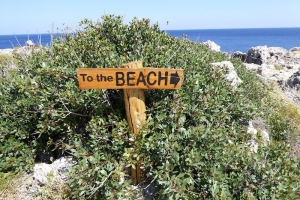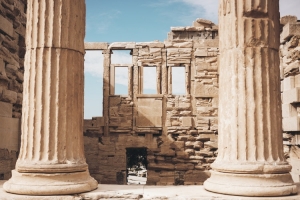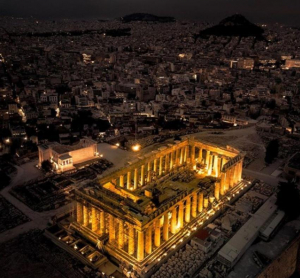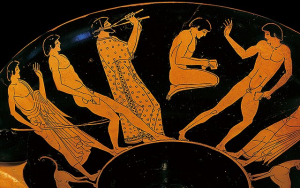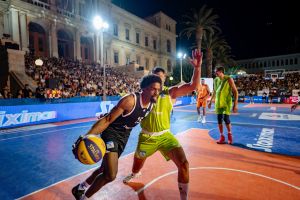WELLNESS HUB
XpatAthens
Greek FinMin Varoufakis’ Interview In Charlie Hebdo
The latest issue of French magazine Charlie Hebdo hosts an interview with Greek Finance Minister Yanis Varoufakis. The issue was released on Wednesday, February 25, and, according to new editor Gerard Biard, pays tribute to extremism, in the shadow of the murderous attacks in Copenhagen on February 14 and 15.
The magazine cover features a sketch of Marine Le Pen, Nicolas Sarkozy, the Pope and a jihadist with a Kalashnikov chasing a dog that has a Charlie Hebdo issue in its mouth.
In his interview, Varoufakis said that racists and nationalists will be the only ones to benefit if European leaders shoot down Greece’s new anti-austerity government. “This is what I tell my counterparts: if you think it is in your interest to shoot down progressive governments like ours, just a few days after our election, then you should fear the worst,” he said.
To read more, please visit greekreporter.com
By Ioanna Zikakou
British Airways Flies Direct From London To Six Greek Islands This Summer
In addition to flights to Kos, Rhodes, Mykonos and Santorini, this summer British Airways will fly direct to Heraklio and Corfu. The last time British Airways flew to Heraklio was some 30 years ago.
“This demonstrates the distint support of the airline to Greek tourism and gives even more passengers the possibility to visit these destinations”, British Airways said in an announcement.
“British Airways continues to invest in the Greek market, expand its route network and proceed with actions that will boost tourism, local communities and their economies”, said Freddie Stier, the commercial manager of British Airways in Greece.
Thessaloniki - A Great Mini Break Destination
Top 10 Things To Do In Athens
This article was originally posted on Onboard.com, which is no longer online.
10 Of The Best Beach Bars In Greece
1st Athens Innovation Festival
Click HERE to learn more about this event or the Athens Innovation Festival's Facebook page.
Athens University Offers First Undergraduate Degree Taught In English
November 27 - Great City - Inspiring People!
Sports Ancient Greeks Loved Competing In
The Ancient Greeks were the first culture in which people idolized their favorite athletic superstars, to a level that even today’s most fanatical sports fans might find extreme.
Kele, or riders competing on horseback, was added to the Olympics in 648 B.C., according to Miller’s book. The race was about 1.2 kilometers (approximately three-quarters of a mile) in length. The jockeys—who were young boys and probably slaves—rode bareback, without stirrups, though they did have reins and a whip to guide the horses.
The Greeks loved footraces, particularly the stadion, which was named after an ancient unit of measurement and corresponded to the 200-meter sprint in modern track, according to Stephen Gaylord Miller’s Ancient Greek Athletics. From 776 to 726 B.C., it was the only event at the Olympic Games. The Greeks later added the diaulos, the equivalent of today’s 400 meters event, as well as a distance event, the dolichos, which was between 7.5 and 9 kilometers—roughly similar to the 10K event that countless recreational runners now participate in each weekend. But the Greeks had one event that has no modern counterpart—the hoplitodromos, in which competitors emulated Greek infantry, and ran wearing helmets and bronze shin guards and carried shields.
3. Wrestling
In ancient Greek-style wrestling, grapplers fought in a standing position, with the object of throwing the opponent to the ground, according to Miller. The concept of pinning an adversary’s shoulders to the ground didn’t yet exist. Instead, wrestlers won a match by throwing an opponent three times. Another unique feature of the ancient event was that there were no weight classes, according to Lunt. The most fearsome wrestler of ancient times was Milos of Kroton, who in legend developed his great strength by lifting and carrying a newborn calf until it grew into a full-sized ox.
4. Pentathlon
The discus and javelin, to modern field events, date back to the ancient Greeks, but back then, they weren’t separate events. Instead, they were part of the pentathlon, a five-event combination that also included the long jump, running, and wrestling. The Greeks had lead or stone weights, called halteres, that some believe jumpers used in an effort to propel themselves further during the competition, though Lunt believes that the weights were only used in training.
To read this article in full, please visit: greekcitytimes.com
Stoiximan AegeanBall Festival, A Celebration Of Basketball, Returns This June








